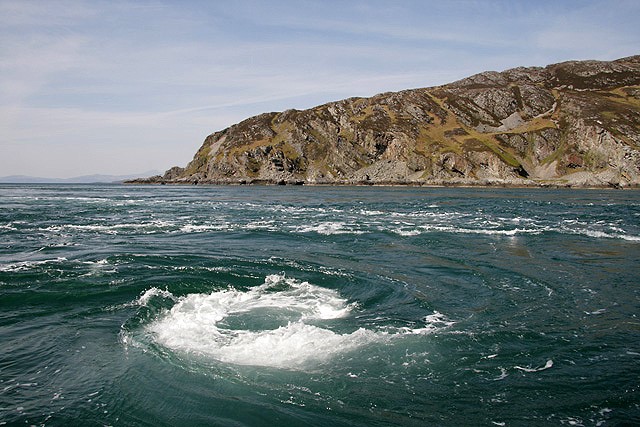Surfaced Tensions
The Friday Reflection by James M. Kushiner
October 9th, 2020

[For the record, I was unable to write Reflections last week due to scheduled minor surgery.]
W
hen I visited Iona, Scotland in 2001, I had hoped to connect with 6th-century Christianity and Scottish history. To what extent are we able to "connect" with the past? I encountered mere shadows of early medieval Christian belief, practice, and experience in the Hebrides. I had studied Iona's magnificent Book of Kells; I worshiped in an 11th-century chapel; walked the fields that were farmed by the monks; participated in the prayers of the Psalter that made up the daily devotional life of the monks. I saw the same physical landscape, touched the waters of the Sound of Iona, and climbed the hill of Dun-I. The beach on which I walked had soaked up the blood of monks slain by the Vikings.
When I first approached the 6th-century world of St. Columba, I thought to read the late 7th-century Life of Columba by his great-nephew Adomnan, abbot of Iona. My sense of that world and its Christian men and women has grown from this and from reading history. We read history to learn. We also read it to escape the cave of chronological snobbery, as C.S. Lewis urged his readers to do. Through good history and reading ancient texts, we can see as in a "distant mirror" the story of man from beginning to end.
There are certain themes running through history that contemporaries, through pride or foolishness, forget. Today is no exception. Herbert Butterfield said in one of his 1949 radio talks (collected in Christianity and History) that "the study of history does open one's eyes to a significant fact":
The plain truth is that if you were to remove certain subtle safeguards in society many men who had been respectable all their lives would be transformed by the discovery of the things which it was now possible to do with impunity; weak men would apparently take to crime who had previously been kept on the rails by a certain balance existing in society; and you can produce a certain condition of affairs in which people go plundering and stealing though hitherto throughout their lives it had never occurred to them even to want to steal. A great and prolonged police-strike, the existence of a revolutionary situation in a capital city...are likely to show up a seamy side of human nature amongst people who, cushioned and guided by the influences of normal social life, have hitherto presented a respectable figure to the world.
Butterfield allows that this dynamic would not be the case "were there no flaws in human nature in the first place." But the facts witness to the flaws, and,
even when society presents a tidy appearance to the historian or the observer its human constituents must make a pathetic bow before a God who searches the secrets of the heart.
There remains what Solzhenitsyn called the line of good and evil running through the heart.
But granted the flaws in human nature, then the orderings and arrangements of a healthy society seem to help out man's imperfections, conspiring with quiet inducements and concealed checks to keep the surface of life comparatively respectable; though down below there slumbers all the time the volcano that lies in human nature, and an unexpected cataclysm may bring it into activity. On the operation of certain safeguards which in normal times work so quietly that the superficial observer may miss them altogether depends all the difference between civilisation and barbarism.
While a civilization may require the swords of Roman legionnaires, Christian civilization needed not Rome's crucifixions but only Our Lord's, which ultimately put an end to theirs.
Yet Judeo-Christian civilization and its "checks" now founders in the waters of the Gulf of Corryvreckan, like George Orwell did the year before Butterfield's lectures were first given. Orwell had been working on 1984 when he nearly sank in the infamous whirlpool off the coast of Scotland. His novel warned against a new civilization that would rewrite and falsify history and destroy human nature.
In Columba's Life, the saint sees bishop Colman caught up in Corryvreckan, which Columba asserts is not divinely intended to overwhelm the ship and drown the bishop, but "to rouse him to pray more fervently that he may sail through the peril and reach us here."
Much of our political rhetoric is the somber froth of a deadly whirlpool. We sit on the knife's edge between barbarism and Christian civilization.
Dismay not, pray more, speak up, and stand your ground.
Yours for Christ, Creed & Culture,

James M. Kushiner
Executive Director, The Fellowship of St. James
—James M. Kushiner is Executive Editor of Touchstone: A Journal of Mere Christianity, and Executive Director of The Fellowship of St. James.







